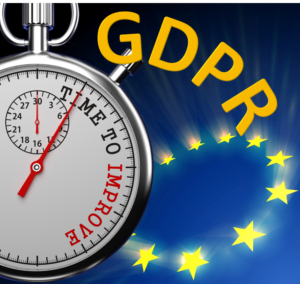Over the past few months I have written several posts about Corporate America’s unhappiness with the requirements of the Sarbanes-Oxley Act [U.S. Business Regulations to Be Examined; Corporations, Compliance, & Competitiveness; More on Compliance & Over Regulation]; and Small Companies Get SOX Relief]. The Secretary of Commerce and the U.S. Chamber of Commerce are among those that have been pressing to have SOX changed. The Chairman of the Libertarian Cato Institute, William A. Niskanen, has now joined the fray with an op-ed piece in the New York Times [“Enron’s Last Victim: American Markets,” 3 January 2007]. Niskanen claims the legislation was passed “hastily” and has “proven counterproductive in the extreme.” He is calling on the new Congress to repeal the law. He claims:
“Sarbanes-Oxley has seriously harmed American corporations and financial markets without increasing investor confidence. The section of the law requiring companies to perform internal audits has turned out to be far more costly than proponents projected, especially for smaller firms. These costs have led some small companies to go private, hardly a victory for public oversight, and some foreign firms to withdraw their stocks from American exchanges. In addition, the average ‘listing premium’ — the benefit that companies receive by listing their stocks on American exchanges — has declined by 19 percentage points since 2002. This explains why the percentage of worldwide initial public offerings on our exchanges dropped to 5 percent last year, from 50 percent in 2000. Other costs associated with the act may turn out to be more important. For example, more stringent financial regulations and increased penalties for accounting errors may make senior managers too risk-averse. Most chief executives are not accountants, so the requirement that they personally affirm audits and accounts — at the risk of jail time should anything be amiss — may make them reluctant to partake in perfectly legitimate activities. … The negative repercussions of the act on businesses might have been worth it if the act had achieved its primary goal: substantially increasing the confidence of investors in the accuracy of the accounts of firms listed on the exchanges. But that does not seem to have happened. The best measure of investor confidence is the price-earnings ratio — the price that investors are willing to pay for each dollar of a company’s reported earnings. The overall price-earnings ratio for the Standard & Poor’s 500-stock index, however, has declined continuously since the Sarbanes-Oxley Act was being drafted in the spring of 2002. “
Undoubtedly SOX has had an adverse affect on public corporations. The complaints have been loud and frequent since the law was passed. Repealing the bill, however, because it “may make senior managers too risk-averse” or because it “may make them reluctant to partake in perfectly legitimate activities” seems a bit extreme. Niskanen simply makes a dismissive wave when it comes to investor confidence without offering recommendations about such confidence can be increased. I think Niskanen would agree that trust must be earned. Trust doesn’t flow naturally from legislation. With the last of the high-publicity cases just being completed last year, I would argue that it is a bit too soon to expect investor trust to be very high. The fact that the Home Depot Board of Directors just dismissed its CEO with a $210 million departure package isn’t going to help. You can’t blame that on Sarbanes-Oxley. Niskanen continues:
“The basic structure of Sarbanes-Oxley is unsound. One big problem is that the act nationalized the rules for corporate governance, reducing the value of the competition among the states for setting such rules. In addition, the act failed to resolve the major conflict of interest created when auditing firms are paid by the companies they audit. Rather than creating a regulation to change the system, Sarbanes-Oxley created an expensive and arguably unconstitutional new regulatory agency to regulate the audit firms’ activities. And, as is too often the case, Congress has rewarded the failures of the very bureaucracies that failed to keep up with Enron — doubling the budget of the Securities and Exchange Commission. Tinkering is not enough. Sarbanes-Oxley continues to discourage smaller companies from trading publicly and foreign companies from listing their stocks on American exchanges. In the eyes of investors, it hasn’t cleaned up any corruption, it has only forced companies to jump through hoops. As Senator Sarbanes and Representative Oxley drift into retirement, their act should retire with them.”
Niskanen certainly stays true to his Libertarian roots, but I would have appreciated a more prescriptive op-ed piece from the head of the nationally-known think tank. Since many average Americans are only invested in stock market through pension funds, I doubt they would see any “value [in] the competition among the states for setting [oversight] rules.” I am hardly a disinterested observer in this matter. I’m the CEO of a company that offers a way for public corporations to help reduce compliance costs. In addition, I may someday want to take my privately-held company public. Deregulation, however, has a mixed history. Investors want a system in place that helps protect their investments. Perhaps SOX isn’t the answer, but regulation and oversight are necessary to help increase trust. Let’s hope some productive ideas are forthcoming.




